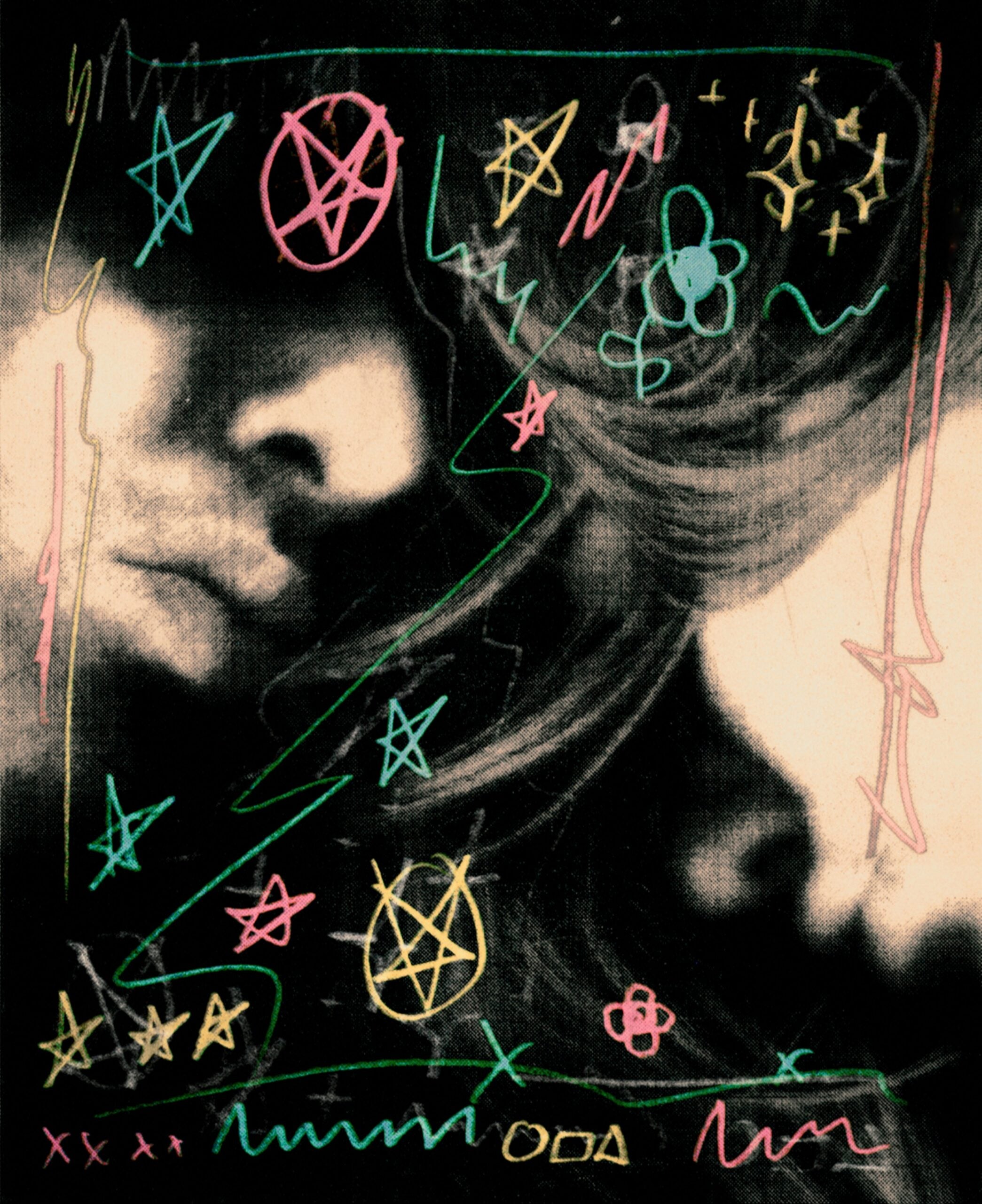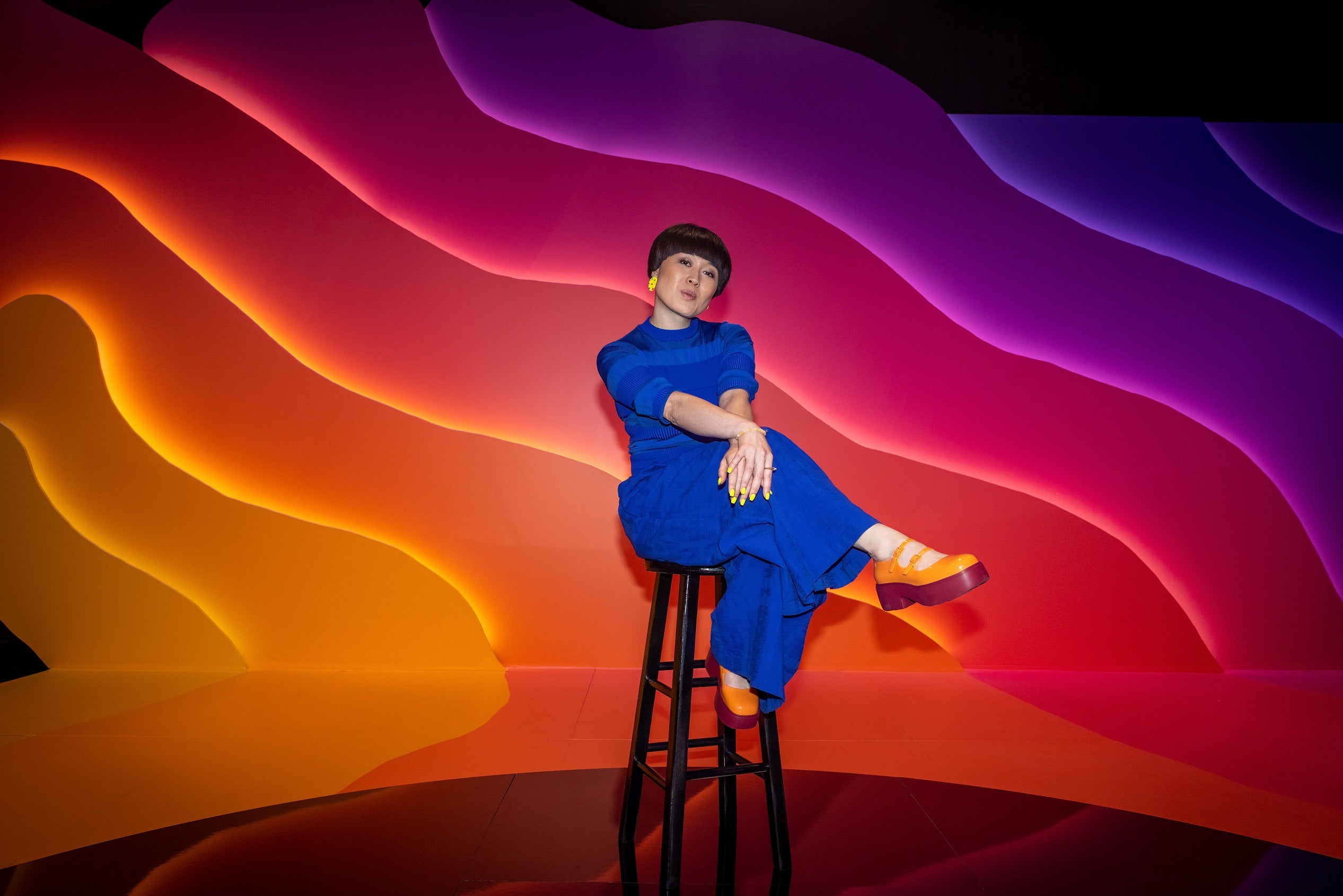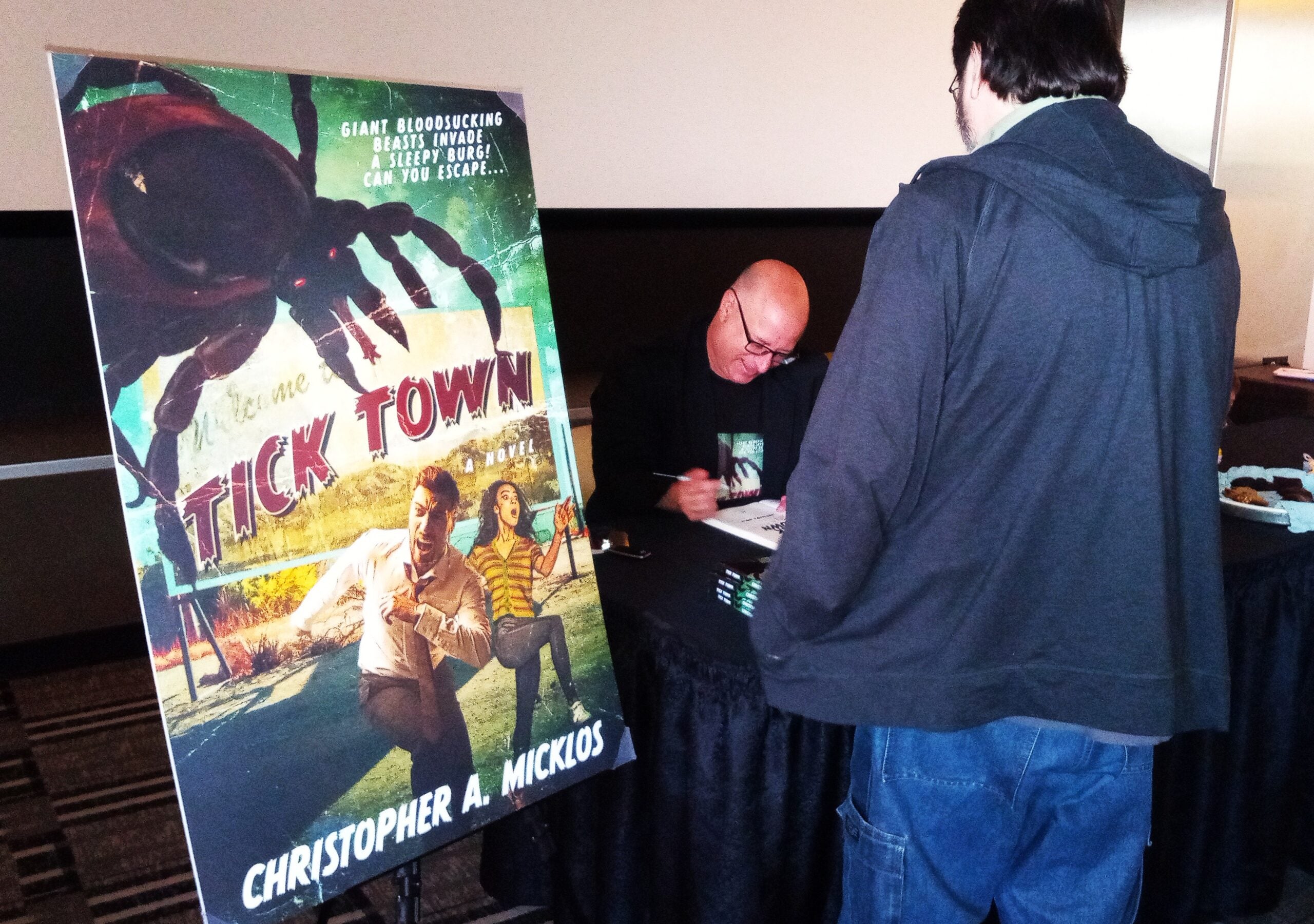Bangles co-founder, Susanna Hoffs, joins us to talk about writing her debut novel and recording a new album. Also, comedian Atsuko Okatsuka intrudes on us to tell us about her high-energy and provocative HBO standup special. And author Kevin Wilson on his novel, ‘Now is Not the Time to Panic.’
Featured in this Show
-
Susanna Hoffs pivots from writing songs to writing a novel and screenplay
Susanna Hoffs has one of the most beautiful voices in pop music.
As a co-founder of the Bangles, she recorded several chart-topping singles including “Manic Monday” (written by Prince), “If She Knew What She Wants,” “Eternal Flame” (co-written by Hoffs) and “Walk Like an Egyptian.“
And now Hoffs has found a new creative outlet for her voice — her debut novel, “This Bird Has Flown.”
It’s the story of a 33-year-old singer/songwriter named Jane Start who is now broke and single. A decade ago, she had a hit song written by the international superstar Jonesy. When Jane takes a flight to London for a change of scenery, she meets a very handsome Oxford literature professor named Tom Hardy. Jane is immediately attracted to Tom, and he seems to be very fond of her.
But Jane begins to wonder if Tom is really as perfect as he seems to be.

Little, Brown and CompanySo, how much of an adjustment was it for Hoffs to go from collaborating with people to write songs to working alone writing prose for her novel?
“Oh, wow. That’s a great question,” she told Wisconsin Public Radio’s “BETA.”
“And you are right. In the past, I have always collaborated in my songwriting life. It was quite a dramatic shift, but unexpectedly joyful, freeing, exhilarating experience to take on this lifelong dream of writing fiction and writing a novel. And I found myself completely consumed and obsessed. It was unexpectedly pleasurable. The characters in the story almost had a life of their own. It was so much fun,” she continued.
Hoffs and her protagonist, Jane Start, are both singers/songwriters. Start exhibits personality traits that Hoffs knows well — openness, being blunt, not self-editing too much and keeping her emotions close to the surface.
“I think she’s a person who feels things deeply, and she loves human beings,” Hoffs said.
Hoffs said that these traits were very similar to the traits she grew up with. Her father, Joshua Allen Hoffs, is a psychoanalyst and her mother, Tamar Ruth, is a writer, film director and producer. Hoffs said that her father let her brothers, Joshua and Jesse (both of whom are musicians), express themselves and not judge them if they had questions. She describes her father as “a very open person” and her mother as “sort of a beatnik artist type.”
Hoffs infused these qualities into the Jane Start character.
At one point in “This Bird Has Flown,” Jane describes how her songwriting process starts optimistically enough, but then self-doubt creeps into her brain.
Self-doubt is something else that Start and Hoffs have in common.
“You don’t know how and why … the muse will strike,” she said. “I mean, it’s a practice. Most of my friends who I revere as songwriters have an excellent practice. I could say that about my practice in writing the book. I was extremely disciplined.”
Universal Pictures has bought the rights to Hoff’s novel. She has just turned in the first draft of the screenplay to the studio and her producers.
Hoffs’ new album

Mark ReynoldsHoffs said that she has to break out of the idea that she has self-doubt when it comes to writing songs.
“I just do. It’s just an old story that lives within me. It’s only true if you tell yourself it’s true,” she said.
Hoffs has a new album called “The Deep End,” coming out the very same week as her novel. It’s produced by the legendary Peter Asher.
“I’ve grown up revering Peter’s work,” Hoffs said. “Not only just his music with Peter and Gordon, but particularly Linda Ronstadt’s ‘Heart Like A Wheel’ and ‘Prisoner in Disguise’ albums, and also his work with James Taylor. He’s a master craftsman. He’s an elegant human being and a dear friend.”
Hoffs recalls giving a Xeroxed manuscript of her book to Asher early on. He read it in two days.
“He doesn’t leave a stone unturned,” she said.
The album features Russ Kunkel on drums, (Milwaukee’s) Leland Sklar on bass and Danny Kortchmar and Waddy Wachtel on guitar.
“We tracked the record so fast, like five days,” she said. “Later, we found ourselves using a string quartet on almost every song on the album, if not all.”
“The Deep End” is a collection of cover versions, and one of them is the Rolling Stones’ song “Under My Thumb.”
“I had this revelation when I was listening to the Stones more recently as a grown up, I was starting to notice lyrics that I had never noticed before,” she said. “But also I realized in listening to ‘Under my Thumb,’ I’m like, ‘Whoa, whoa, whoa, whoa. Oh, OK. Let me really think about the story that’s being painted in this song.’ And I thought, ‘Oh, it’s time, in this decade that we’re in, this year that we’re in, and this time period that we’re all living in, to maybe do a little gender flip here. And empower the ladies.’”
Hoffs also covers Holly Humberstone’s very powerful song, “Deep End.”
“I owe all credit to Peter for being very tapped into a new, young, brilliant, talented, wonderful creators in the music field. And he just shared that song with me and I just felt like I was floored by that song. I thought it was one of the most beautiful songs I’d ever heard.“
The opening lyrics of “Deep End” are: “Throw me in the deep end. I’m ready now to swim.”
The song servea as a metaphor for the journey that Hoffs took while writing “This Bird Has Flown.”
“I did throw myself in the deep end, and that’s one thing — that now that I’m 64 — I want to share with others, that if I had any advice to give someone who wants to — actually it can apply to anything that you have a burning passion to do, whether it’s being an artist or something else — I say don’t wait around for permission. Just dive in … because if you wait for permission, you may never get it.”
-
Standup Atsuko Okatsuka on her layered, high-energy, hilarious special, 'The Intruder'
Years ago, one could name almost every American stand-up comic working. However, they were primarily white men and knew they had made it when they finally appeared on “The Tonight Show” starring Johnny Carson.
Today, comics are abound. In almost every town in the country, you can find a comedy club with all manner of purveyors of humor vying to make you laugh, the lifeblood of every comedian.
With all those comics running around, how do you know if they are funny? We don’t know. Maybe it’s like what Supreme Court Justice Potter Stewart once said about pornography: “I know it when I see it.”
In a search for the key to humor, Wisconsin Public Radio’s “BETA” was led to Atsuko Okatsuka. Variety has called her one of the top 10 comics to watch in 2022. Her HBO special is called “Atsuka Okatsuko: The Intruder.”
“BETA” talked with Okatsuka about how she came up with the material for her show and where the title “The Intruder” came from.
“So, during the pandemic,” she tells us, “my husband and I had an intruder come to our house three times in the same day. And that becomes the story structure of the special.”
Three times a day meant a story in three acts, Okatsuka said. She returns to the intruder story throughout the hour, recounting what happened and how she finally got rid of him.
“…The way that I try to fend him off — or not try to fend him off — says a lot about me, like growing up with this under a layer of insecurity, not feeling like I belonged in various communities and being in the United States feeling like an outsider. I often felt like an intruder myself,” Okatsuka said. “On top of that, there’s a literal intruder. So It felt right that that would be the title.”
“All of that was just like my upbringing. Everything led me to this moment of feeling threatened in my own home that I was afraid even to call my home for the longest time. Because in the special, I joke that I am just renting, so it’s not my home,” she continued.
With the story of the intruder as the backdrop, Okatsuka moves us through various topics about her life in this country as an immigrant, like being raised by her grandma, which Okatsuka said didn’t help much with her social development.
“Her raising me, I think, gave me a different perspective as a young kid. I just saw more of the generational trauma. I was able to see it in my grandma,” she said. “I could see how hard she worked and then how my mom couldn’t work because she suffered from mental health issues. So I think emotionally, that made me very mature, very fast. But socially stunted because I was hanging out with someone 50 years older than me.”
Okatsuka spent the first part of her life in this country as an immigrant lacking permanent legal status, but she didn’t find out until she was 17.
She explained: “You can do a lot without having papers. So I like to normalize it by saying undocumented folks are just Americans without papers. They’re able to go to public school. They’re your friends. They’re your neighbors. If they’re able to, they work. And we all pay taxes.
“Inherently, because of it, we can go to the park, we can go to the library, and we can take public transportation. I didn’t quite know what that status meant. I couldn’t vote, drive, or do things like that. Of course, that required a Social Security number. But it did give me a sense of being an outsider. It affected how I tried to make friends because I was embarrassed by our living situation. We lived in a garage, so I wouldn’t invite people over. But all in all, I was surprised at how much I could do like any other kid,” Okatsuka said.
Whether talking about feeling awkward around teenagers, dealing with substantial generational gaps, or even fending off an intruder, Okatsuka finds a way to make her point and make people laugh.
She says that stand-up comedy is a service industry, so she must be funny.
“It’s for the people, by the people,” she said. “People paid for tickets to come to see you. People traveled to come to see you. So I think you should serve. And so that’s what I mean by the service industry. It’s an art form, you know, that is very raw and very personal.”
-
Kevin Wilson on his rebellious coming-of-age novel, 'Now is Not the Time to Panic'
Some members of Generation X have a nostalgic sweet spot for the mid-1990s. It was a time when the latch-key freedom of the ’80s still reigned over life online.
That’s the setting for author Kevin Wilson’s captivating novel, “Now is Not the Time to Panic.” It’s a tale of rural teen friendship, loneliness and artistic rebellion in an era where you had no clue what was going on beyond the borders of your town.
Wilson joined Wisconsin Public Radio’s “BETA” to talk about his novel, and he admitted there’s both a practical reason and an artistic reason for setting it in the ’90s.
“The artistic reason is that I grew up in the ’90s and one of the things I love is, is that moment right before technology really opens up the world,” Wilson said. “For me, living in a rural town in the ’90s, there was a kind of isolation that I think made you get weird if you wanted something that you couldn’t have.”
Wilson said this lack of connectivity to the wider world led to more imaginative fleets of fancy.
“You also don’t really know everything that’s out there. So, you invent something, and you think you’re the first person that made it. And that makes you a little weird too because you feel magical,” he said.
His novel centers on a pair of 16-year-olds, Frankie Budge and the new kid in town, Zeke. The two spot each other at the town pool and find a kindred spirit in each other during the ennui of summer. Frankie is an aspiring teenage writer. She’s bored with her small town until she meets the talented artist, Zeke. Together they create a suspicious graffiti poster which creates widespread panic among the quiet town.
“They kind of recognize the loneliness of each other. And the summers for teenagers are kind of unstructured and unfamiliar. And so, in this moment, I think they realize, ‘Hey, we can hold on to each other, we can do fun stuff. We can be less alone,’” said Wilson.
Wilson shared that in addition to identifying and solving the other’s loneliness, Zeke and Frankie inspire and ignite a respective weirdness and creative rebellion in each other.
“Both of them are artistically inclined, and one of them writes and one of them draws, and they’ve got this whole summer ahead of them,” Wilson said. “And Zeke suggests that they collaborate on a project, and so they decide to make a poster where Zeke will provide the art and Frankie will provide the text, and they feel like they can spend the whole summer hanging it up and kind of making themselves known to their tiny little town.”

Graphic designer Erik Carter’s interpretation of the unsigned poster in Kevin Wilson’s novel, “Now is Not the Time to Panic.” Erik Carter erikcarter.net The cryptic words that Frankie comes up with for the poster in question are:
“The edge is a shantytown filled with gold seekers. We are fugitives, and the law is skinny with hunger for us.”
Wilson admits that he himself did not create that statement for the novel, but rather repurposed that quote from his late friend, Eric.
Back during his freshman year at New York University, Wilson roomed with his cousin. Eric was his cousin’s best friend. Eric and Wilson, like Frankie and Zeke, found a kindred spirit in each other.
“We hung out, and I just really liked him. He was super charismatic. We would make little movies. He encouraged me to write,” Wilson said.
And write he did. In fact, Kevin was paying the bills writing a 500-page procedural manual for medical equipment that would be posted to the newly burgeoning internet. During his fits of boredom, he was inserting lines into the copy to see if anyone would notice. After alerting Eric to this small act of rebellion, Kevin asked Eric if he’d like to contribute a quote.
“I was like, ‘I’m writing stuff that’s slightly apocalyptic, a little strange.’ And he said, ‘Oh, I’ve got you.’ And he said that line and for whatever reason, it just burned itself into my brain and I’ve held on to it ever since,” Wilson recalled.
While few people saw Kevin’s spin on medical procedure, the townsfolk in “Now is Not the Time to Panic” do see Zeke and Frankie’s posters.
“I think people get freaked out in a tiny town. A mysterious poster pops up. You think you know everyone. So, you either imagine someone in your town is evil and weird or strange people have invaded your town. Either way, it’s not great. And so, it causes more of a panic than they think,” Wilson said.
To share more would spoil the fun of the novel. Wilson hopes though that much like his first novel, “The Family Fang,” that “Now is Not the Time to Panic” has a chance to be adapted into a movie.
“Anytime you write something and you get to meet Nicole Kidman, you’re like, ‘I would like that to happen again,’” Wilson quipped. “One of the things I’ve kind of learned is just how unpredictable the film industry is. You never quite know what’s going to happen. I know that it’s out there and I’m hopeful that somebody wants to take a chance on it. And just the idea of seeing it on the big screen is fascinating.”
If “Panic” is adapted to the big screen, it would formally visualize the catalytic poster. For his part, Wilson says that he’s received no shortage of fan interpretations that can be both flattering and disconcerting.
“It’s so strange. Since the book has come out, I’ve actually had multiple people send me their idea of what the poster looks like, which has been a little disconcerting, but also just amazing to see it actually in front of me,” he said.
“You spend your entire life writing inside your own head and you imagine this thing and it’s a private enterprise. And obviously, when you send a book out into the world, you want it to connect with people,” Wilson said. “But then, there’s always that moment where you’re like, ‘Oh, people have seen this, people have imagined people have taken it and done something with it.’ And you’re always like, ‘I hope I did something good here.’ And so far, it’s been lovely. But you’re never quite prepared to hear the signal come back to you.”
Episode Credits
- Doug Gordon Host
- Adam Friedrich Producer
- Steve Gotcher Producer
- Steve Gotcher Technical Director
- Susanna Hoffs Guest
- Atsuko Okatsuka Guest
- Kevin Wilson Guest
Wisconsin Public Radio, © Copyright 2026, Board of Regents of the University of Wisconsin System and Wisconsin Educational Communications Board.

